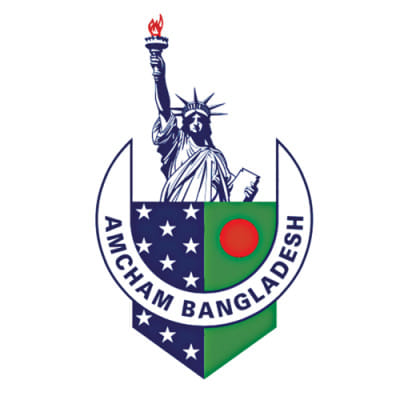AmCham puts steps forward to support marginal farmers

The American Chamber of Commerce in Bangladesh (AmCham) disbursed Tk 2,600 each to 1,000 marginal farmers of Sirajganj district yesterday, in a bid to support continual production in the agriculture sector amid the ongoing coronavirus pandemic.
"Producing sufficient food for everyone in the country is our main target," said Agriculture Minister Abdur Razzaque.
Razzaque made these comments while inaugurating the 'AmCham Support for the farmers during COVID-19 Pandemic' programme, which was conducted online to ensure the safety of those participating.
The beneficiaries can use the fund to purchase daily essentials or other materials needed to cultivate crops as the COVID-19 outbreak, river erosion and flooding has had a severe impact on their businesses.
Financial and technical assistance for the farmers will also help them bring their goods back to the market following months of hardship due to the recently concluded nationwide lockdown.
Sirajganj is prone to flooding and river erosion. As a result, many farmers in the area, specifically the marginal ones, often lose their investments and eventually become poorer.
Considering the situation, AmCham member companies collectively contributed Tk 26 lakh for the fund, which was donated to the farmers through Sajida Foundation, a local non-governmental organisation that provides medical, financial and technical assistance to the marginalised.
Besides, farmers can use the grant to pay for the preservation and transport of their goods.
"We had bumper rice production in the last boro season and we are expecting another bumper production in the Aus and Aman seasons. So, we do not have a problem with the food supply. We just have to reserve the food for the next six months," Razzaque said.
Since Bangladesh is self-sufficient when it comes to food, the country often exports surplus supplies of rice to other countries as relief in times of disaster.
Therefore, the government wants to further increase cultivation and the supply of food.
For instance, Bangladesh sent 20,000 and 50,000 tonnes of rice to Nepal and Sri Lanka respectively when the two nations suffered from natural calamities.
"COVID-19 is a threat to our lives and livelihoods. We have to continue our success in food production," Razzaque added.
The coronavirus pandemic is also a threat to food security in the country, said Earl R Miller, the US ambassador to Bangladesh.
Habibe Millat, a member of parliament from the Sirajganj-2 constituency, said his district is a gateway for the country's northern districts and, despite being vulnerable to floods and river erosion, is famous for its dairy and fishery industries, among others.
"We believe that the agriculture sector's performance has an overwhelming impact on major macroeconomic objectives like employment generation, poverty alleviation, human resources development, food security and so on," said AmCham President Syed Ershad Ahmed.
Agriculture is the largest employment sector of Bangladesh, which is the fourth-biggest rice-producing country in the world.
This is why special attention should be given to the industry, and rightly so, the prime minister has been motivating farmers to not leave even an inch of land uncultivated, Ahmed said.
Upwards of 80 per cent of Bangladesh's workforce is still engaged in the informal sector, of which more than 40 per cent are employed in the agriculture sector alone.
This makes farmers, especially the marginal ones, the true heroes behind the country's economic development.
Sine the coronavirus fallout has also had an adverse effect on Bangladesh's three main economic pillars -- export, remittance and a vibrant middle class -- AmCham decided to support the country's agriculture sector without hesitation, Ahmed said.
The sale, transport and distribution of goods amid the coronavirus pandemic are challenging for the marginalised, said Zahida Fizza Kabir, chief executive officer of Sajida Foundation.
"We will try to help the farmers overcome those challenges," she added.
AmCham Vice-President Syed Mohammad Kamal moderated the event.

 For all latest news, follow The Daily Star's Google News channel.
For all latest news, follow The Daily Star's Google News channel. 



Comments